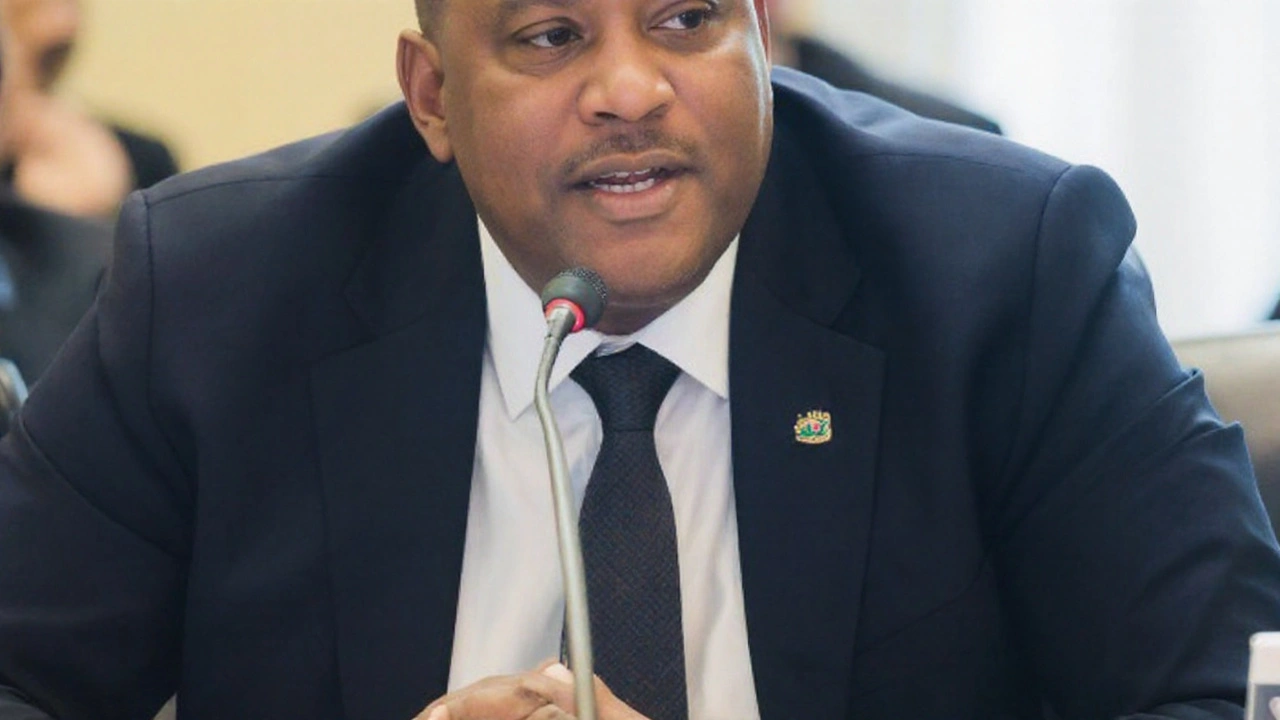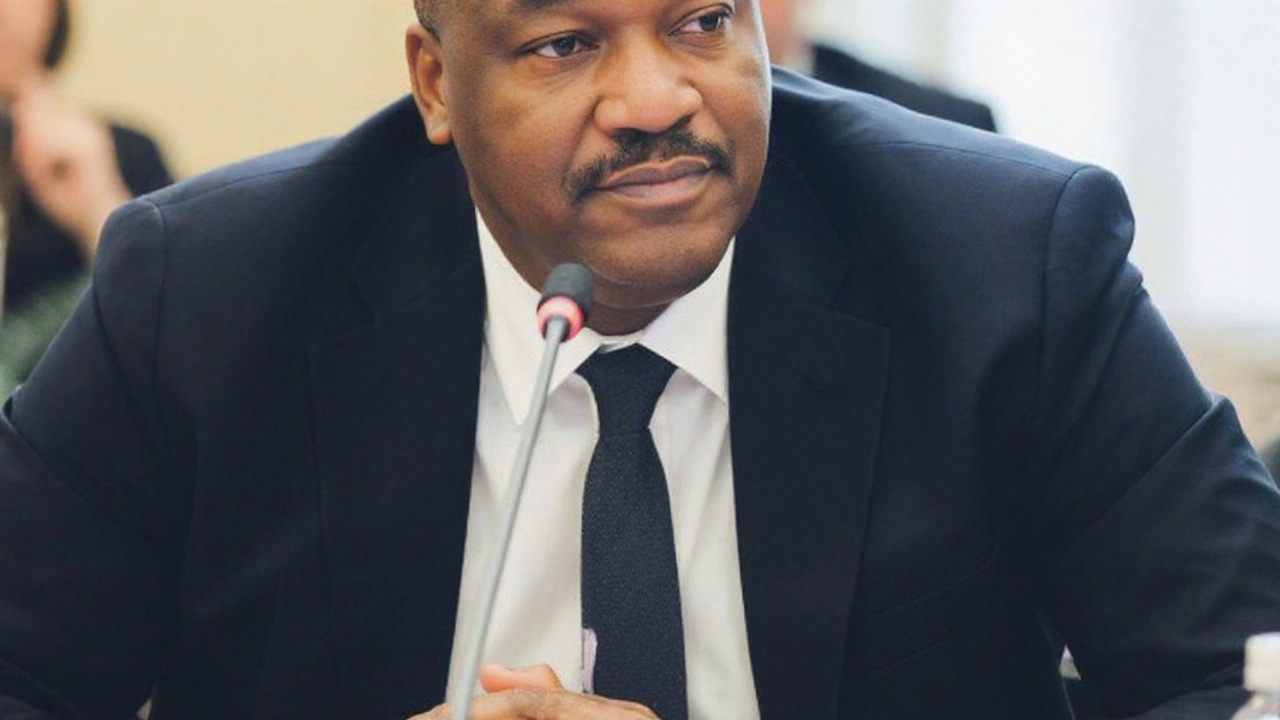Gayton McKenzie’s Funding Cuts Spark Outcry Over South Africa’s Festival Scene

What prompted the sudden pull‑back?
When Gayton McKenzie announced that the Department of Sport, Arts and Culture would stop funding the country’s biggest cultural celebrations, the reaction was instant. He cited a retrospective audit of COVID‑19 era grants, claiming some festivals had been over‑paid during lockdowns. Critics, led by DA MP Leah Potgieter, say the letter dated 17 September 2025 is a thinly veiled excuse to strip money from events that have long enriched local economies.
The list of affected festivals reads like a who’s‑who of South African culture: the Cape Town International Jazz Festival, the National Arts Festival in Makhanda, the Klein Karoo Nasionale Kunstefees (KKNK) in Oudtshoorn, Suidoosterfees, Woordfees, Innibos in Mpumalanga, Aardklop in Potchefstroom, Cape Town Carnival, and the Vrystaat Kunstefees in the Free State. Together they pull in millions of rand each year and employ hundreds of artists, technicians, and support staff.

Why the backlash matters
Beyond the immediate job losses, the cuts threaten a wider creative ecosystem. The Cape Town Carnival alone creates roughly 1,000 paid gigs annually and supports over 280 small, medium and micro‑enterprises (SMMEs). About 40% of its budget goes straight to local businesses, while another 39% funds employment. Removing that safety net could flatten the cultural calendar that draws tourists and fuels regional commerce.
Opposition parties argue that the Minister’s push to re‑channel funding through the Mzansi Golden Economy (MGE) Fund is anything but transparent. The MGE’s allocation criteria have not been published, and several DA insiders suggest the pool favors projects linked to the Minister’s political allies. This feeds a narrative that the Department has become a tool for "political patronage" rather than a steward of South Africa’s artistic heritage.
Industry groups are fighting back. They’ve demanded the reinstatement of proven festivals, full disclosure of every MGE transaction, and an independent adjudication panel to decide future allocations. The DA has also highlighted other departmental failings – unpaid invoices, missed targets, and a diversion of R82 million from grassroots sports to fund VAR technology – as evidence of mismanagement.
- Financial impact: Millions of rand in annual revenue from festivals are now at risk.
- Employment impact: Hundreds of direct jobs and thousands of indirect roles could disappear.
- Economic ripple: Small businesses that rely on festival crowds face severe downturns.
- Political dimension: Allegations of patronage erode public trust in cultural funding.
Artists, venue owners, and local councils are banding together, planning protests, and preparing legal challenges. They say the cuts don’t just affect a night of music or a weekend of theater – they erode the very fabric of South African identity, which has always been expressed through vibrant public celebrations.
As the debate heats up in Parliament, the Minister remains under pressure to justify his actions. Whether he will reverse course or double‑down on the MGE Fund remains to be seen, but the arts funding cuts have already sparked a nationwide conversation about who gets to decide what culture survives in a country hungry for both heritage and progress.
Those festival cuts are a real blow to the scene 😔.
Seeing how many gigs vanish makes you feel the weight on the artists' shoulders. The Cape Town Carnival alone fuels a thousand paid gigs every year, so pulling that money hits livelihoods hard. Small businesses that rely on festival crowds will face a serious downturn, and that ripples through the whole local economy. It’s not just about one night of music; it’s about sustaining a network of creators and entrepreneurs. Hopefully the pressure from the industry will force a rethink.
The audit claim sounds tidy, but it ignores the grassroots impact. Festivals are more than ticket sales; they’re cultural lifelines. Cutting them now could cripple years of community building.
While the numbers matter, we can’t forget that arts fuel tourism and pride. The Department should weigh long‑term cultural health over short‑term balances. A transparent re‑allocation could help, but secrecy only fuels distrust.
Imagine a world where the rhythm of a city stops because someone decided to count pennies.
Festivals are the heartbeat of a nation, pulsing through streets, markets, and souls.
When you pull funding, you’re not just cutting a budget line; you’re silencing a chorus of voices that have survived apartheid, droughts, and pandemics.
These events teach our youth history through song, dance, and shared laughter.
They create jobs not just for headline acts but for stagehands, food vendors, and local craftsmen.
Each lost gig is a story untold, a skill unpractised, a dream postponed.
The Cape Town Carnival, for instance, supports over 280 small enterprises; think of the ripple effect when those businesses close.
And it’s not only economics – cultural identity thrives on public celebration, on the freedom to express without fear.
When a minister hides behind an audit, he cloaks a political move that favors allies over artists.
Transparency is the antidote; without it, we’re left guessing who benefits and who suffers.
Artists have already begun to rally, planning protests that echo the very spirit these festivals embody.
Legal challenges will test the resilience of our arts sector, but the spirit of resistance is itself a performance.
We must ask ourselves: do we value a tidy spreadsheet more than the vivid tapestry of our heritage?
History will judge whether this was a short‑sighted fiscal tweak or a cultural catastrophe.
So let the conversation keep rolling, louder than any official memo could ever be.
Nice move, cutting money from the places that actually bring people together. Shows a real talent for mismanagement.
🙂 Yeah, it’s wild how “efficient” they think this is. The loss isn’t just numbers; it’s community vibes disappearing.
All part of the grand plan to funnel culture into private pockets.
When we look at the larger picture, festivals act as incubators for artistic innovation. They bring together seasoned performers with emerging talent, fostering mentorship that cannot be quantified in a spreadsheet. The ripple effect reaches educational institutions, where students gain exposure to professional standards. Moreover, the social cohesion these events generate reduces community tensions, something no budget line can capture. By cutting funds, we risk dismantling these subtle yet powerful networks. The intangible cultural heritage, the shared memories, and the sense of belonging are at stake. It’s crucial to remember that culture is not a luxury; it’s a societal necessity. Re‑evaluating funding must involve stakeholders, not just top‑down decisions.
Agreed, the community aspect is huge.
Let’s keep pushing for transparent processes – the arts deserve a fair chance.
The financial repercussions are evident, yet the cultural costs remain under‑estimated.
Under‑estimated? More like outright ignored by those in power.
From a strategic standpoint, reinvesting in cross‑sector partnerships could mitigate the shortfall. Leveraging tech platforms for live streaming can open new revenue streams while extending reach. Aligning festival branding with tourism boards creates synergistic marketing opportunities. Engaging corporate sponsors through CSR initiatives may also fill gaps without compromising artistic integrity. Optimism lies in collaborative innovation, not in unilateral cuts.
Absolutely, the key is to foster inclusive partnerships that elevate both the arts and the economy. By building bridges between creators and investors, we can ensure sustainable growth. It’s essential to keep the dialogue open, inviting feedback from grassroots organizers who understand the pulse of their communities. This collaborative approach not only safeguards cultural heritage but also stimulates job creation across sectors. Let’s champion policies that reflect this holistic vision, ensuring festivals remain vibrant pillars of society.
Wow, the outcry is huge! People really care about keeping the festivals alive.
Exactly, these events are the soul of our cities and they need our support.
The numbers clearly show the economic impact.